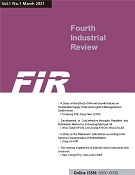 E-ISSN : 2765-7213
E-ISSN : 2765-7213
Investment Climate Analysis of China and South Korea: Based on Grading Method
XU, Xin Yu
XU, Jie
SU, Shuai
ZHANG, Fan
Abstract
Purpose - This study analyzes the investment environment of South Korea by using the rating scale of Robert B Stobaugh, Jr, and draws conclusion implication. Research design, data, and methodology - The study conducted a survey on according to the political stability, capital repatriation, foreign ownership allowed, discrimination and controls, foreign vs domestic businesses, currency stability, willingness to grant tariff protection, availability of local capital, and annual inflation for last 5 years. The score of these eight aspects will be given based on the current situation in South Korea and the sum of the scores will be calculated. Result - China-Korea economic and trade relations are in a stage of transformation and upgrading, and the level of economic and trade cooperation in various fields is reaching a new level. It is hoped that Chinese enterprises will grasp business opportunities, strengthen research and analysis of the Korea market and achieve mutually beneficial cooperation. Conclusion - The investment environment of South Korea is superior according to the political stability, capital repatriation, foreign ownership allowed, discrimination and controls, foreign vs domestic businesses, currency stability, willingness to grant tariff protection, availability of local capital, and annual inflation for last 5 years.
- keywords
- China-Korea, Grading Method, Investment Climate Analysis Model
- Downloaded
- Viewed
- 0KCI Citations
- 0WOS Citations













